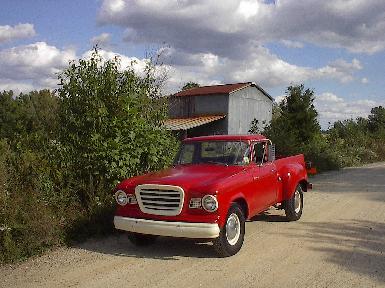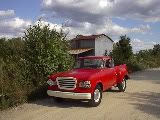OK. I will concede advancing of the cam timing of a 70's engine
might only be bringing it back to where it should have been. (read my last comment). But by the service manual, I am now in the area of 5 degrees advanced instead of the 10 or so retarded that it was when I bought it. Which is closer? It seems to start and idle better than it did, but high speed seems about the same. (if you call 3600 high speed). this would be the opposite of your guess of high speed being better, and loosing on low. I agree theat usually if you gain in one area, you will loose in another.
I am still wondering if there are any HP-torque curves vs. RPM. Maybe no one has one, but what RPM is the best torque, and what is the best for HP ?
On the compression, if you reduce 140# ( book says 140-160) by 12% it is 123 shich isn't that far off what I have. Some where it sticks in my mind that power was reduced by 3 % per 1000 elevation which would be 25# less than 140, exactly what I have, unless the compression is guaged from whatever elevation South Bend is from.
Most the engines on this place are probably down a bit on compression, but they run well for what they are.
That said, I am sure the compression is not all that great as it is a long way from new, and I have no idea of its past. I think that the advice about timing or carburation has more validity. When it comes back from the trans shop I will work on the advance curves and maybe swap distributors. Anyone know if a Delco distrubutor for a studebaker can be upgraded to HEI? I can also swap in a couple of different carbs and see if that helps. I don't see any reason doing an expensive overhaul if I don't have the confidence that I will be happy when it is done.
I once had a riding lawnmower with a worn out engine, about 70# compression. I bought a new long block from Briggs and Stratton for about $600 . It started better with better compression, but power was still the _________(and thats bad). That lesson still stings.
thanks for the help David
might only be bringing it back to where it should have been. (read my last comment). But by the service manual, I am now in the area of 5 degrees advanced instead of the 10 or so retarded that it was when I bought it. Which is closer? It seems to start and idle better than it did, but high speed seems about the same. (if you call 3600 high speed). this would be the opposite of your guess of high speed being better, and loosing on low. I agree theat usually if you gain in one area, you will loose in another.
I am still wondering if there are any HP-torque curves vs. RPM. Maybe no one has one, but what RPM is the best torque, and what is the best for HP ?
On the compression, if you reduce 140# ( book says 140-160) by 12% it is 123 shich isn't that far off what I have. Some where it sticks in my mind that power was reduced by 3 % per 1000 elevation which would be 25# less than 140, exactly what I have, unless the compression is guaged from whatever elevation South Bend is from.
Most the engines on this place are probably down a bit on compression, but they run well for what they are.
That said, I am sure the compression is not all that great as it is a long way from new, and I have no idea of its past. I think that the advice about timing or carburation has more validity. When it comes back from the trans shop I will work on the advance curves and maybe swap distributors. Anyone know if a Delco distrubutor for a studebaker can be upgraded to HEI? I can also swap in a couple of different carbs and see if that helps. I don't see any reason doing an expensive overhaul if I don't have the confidence that I will be happy when it is done.
I once had a riding lawnmower with a worn out engine, about 70# compression. I bought a new long block from Briggs and Stratton for about $600 . It started better with better compression, but power was still the _________(and thats bad). That lesson still stings.
thanks for the help David




Comment